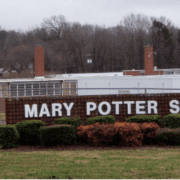American Red Cross: Create An Escape Plan In Case Of Fire – And Then Practice!
– information courtesy of the American Red Cross
During Fire Prevention Week (October 5-11), the American Red Cross North Carolina Region reminds everyone of the dangers of home fires, which claim seven lives every day in the U.S. To help protect your household, test your smoke alarms each month and practice your escape plan until everyone can get out in less than two minutes.
“Home fires don’t wait for the right moment, but being prepared makes all the difference,” said Sharonne Hayes, the Red Cross regional Communications Manager of the North Carolina Region. “When a smoke alarm sounds, your family should be ready to act fast. Testing your smoke alarms and practicing your escape plan helps ensure your family knows what to do when every second matters.”
Here are a few tips for creating a home fire escape plan and practicing a 2-minute drill:
- Everyone in your household should know two ways to escape from each room in your home.
- Smoke is dangerous. Get low and go!
- Decide where to meet once you get outside. Select a meeting spot at a safe distance away from your home, such as a neighbor’s home or landmark like a specific tree in your front yard, where everyone knows to meet.
- Get out and stay out. Never go back inside for people, pets or things.
- If a fire starts, you may have less than two minutesto get to safety. Time your fire drill and find out: What’s your escape time?
- While practicing your escape plan, teach children what a smoke alarm sounds like. Talk about fire safety and what to do in an emergency.
Smoke alarm safety:
- Place smoke alarms on each level of your home, including inside and outside bedrooms and sleeping areas.
- In addition to testing your alarms once a month, change the batteries at least once a year, if your model requires it.
- Also check the manufacturer’s date of your smoke alarms. If they’re 10 years or older, they need to be replaced because the sensor becomes less sensitive over time. Follow the manufacturer’s instructions.
Local Red Cross Disaster Action Team volunteers provide emotional support, financial assistance, and information to help families begin the process of recovery. Most of the 65,000 emergencies that the Red Cross responds to each year are home fires.
For emergencies like home fires, our volunteers provide comfort during what can be the worst days of people’s lives. Learn how you can volunteer for our Disaster Action Team at redcross.org/DAT. Since October 2014, the American Red Cross Home Fire Campaign, working with community partners, has saved at least 2,479 lives by educating families about fire safety, helping them create escape plans and installing free smoke alarms in neighborhoods across the country. Our local Sound the Alarm initiatives have helped save 87 lives across North Carolina by installing more than 83,600 free smoke alarms in high-risk communities. To learn more about the campaign and how you can get involved, visit redcross.org/homefires.
If you need assistance, visit redcross.org/NC for a free smoke alarm installation.









